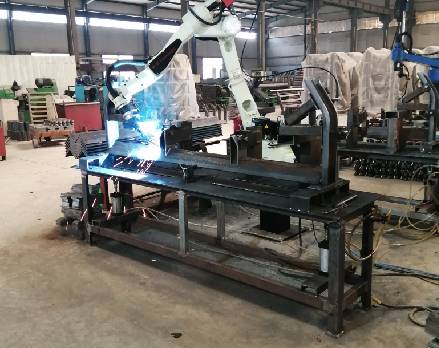 Afrikaans
Afrikaans  Albanian
Albanian  Amharic
Amharic  Arabic
Arabic  Armenian
Armenian  Azerbaijani
Azerbaijani  Basque
Basque  Belarusian
Belarusian  Bengali
Bengali  Bosnian
Bosnian  Bulgarian
Bulgarian  Catalan
Catalan  Cebuano
Cebuano  Corsican
Corsican  Croatian
Croatian  Czech
Czech  Danish
Danish  Dutch
Dutch  English
English  Esperanto
Esperanto  Estonian
Estonian  Finnish
Finnish  French
French  Frisian
Frisian  Galician
Galician  Georgian
Georgian  German
German  Greek
Greek  Gujarati
Gujarati  Haitian Creole
Haitian Creole  hausa
hausa  hawaiian
hawaiian  Hebrew
Hebrew  Hindi
Hindi  Miao
Miao  Hungarian
Hungarian  Icelandic
Icelandic  igbo
igbo  Indonesian
Indonesian  irish
irish  Italian
Italian  Japanese
Japanese  Javanese
Javanese  Kannada
Kannada  kazakh
kazakh  Khmer
Khmer  Rwandese
Rwandese  Korean
Korean  Kurdish
Kurdish  Kyrgyz
Kyrgyz  Lao
Lao  Latin
Latin  Latvian
Latvian  Lithuanian
Lithuanian  Luxembourgish
Luxembourgish  Macedonian
Macedonian  Malgashi
Malgashi  Malay
Malay  Malayalam
Malayalam  Maltese
Maltese  Maori
Maori  Marathi
Marathi  Mongolian
Mongolian  Myanmar
Myanmar  Nepali
Nepali  Norwegian
Norwegian  Norwegian
Norwegian  Occitan
Occitan  Pashto
Pashto  Persian
Persian  Polish
Polish  Portuguese
Portuguese  Punjabi
Punjabi  Romanian
Romanian  Russian
Russian  Samoan
Samoan  Scottish Gaelic
Scottish Gaelic  Serbian
Serbian  Sesotho
Sesotho  Shona
Shona  Sindhi
Sindhi  Sinhala
Sinhala  Slovak
Slovak  Slovenian
Slovenian  Somali
Somali  Spanish
Spanish  Sundanese
Sundanese  Swahili
Swahili  Swedish
Swedish  Tagalog
Tagalog  Tajik
Tajik  Tamil
Tamil  Tatar
Tatar  Telugu
Telugu  Thai
Thai  Turkish
Turkish  Turkmen
Turkmen  Ukrainian
Ukrainian  Urdu
Urdu  Uighur
Uighur  Uzbek
Uzbek  Vietnamese
Vietnamese  Welsh
Welsh  Bantu
Bantu  Yiddish
Yiddish  Yoruba
Yoruba  Zulu
Zulu belt wiper
The Versatile Belt Wiper Functionality and Applications
In various industries, machinery plays an integral role in productivity and efficiency. Among the numerous components that make up industrial equipment, the belt wiper stands out as a crucial part that ensures optimal performance. While it may seem like a simple accessory, its functionality greatly impacts the operational effectiveness of conveyor belts and machinery alike. This article delves into what a belt wiper is, its importance, and its various applications across different sectors.
What is a Belt Wiper?
A belt wiper is a device designed to remove debris, moisture, and contaminants from conveyor belts, ensuring smooth operation and minimizing wear and tear. Typically made from durable materials, belt wipers can adapt to various belt sizes and types, making them suitable for numerous applications across different industries. They are often installed alongside the belt’s return side and work by utilizing friction or scraping motions to keep the surface clean.
Importance of Belt Wipers
1. Enhanced Efficiency One of the primary benefits of using a belt wiper is the increase in operational efficiency. Clean belts contribute to smoother transportation of materials, reducing the chances of slippage or jams. This efficiency leads to faster production rates and less downtime, which is crucial in competitive industries.
2. Extended Equipment Lifespan By keeping belts clean, wipers help in prolonging the life of the conveyor system. Accumulated debris can lead to excessive wear, premature failure, and costly repairs. Regular maintenance with the aid of belt wipers can significantly mitigate these risks.
3. Safety Improvements The presence of debris or spills on conveyor belts can pose safety hazards for workers. A belt wiper helps maintain a clean operating environment, reducing the likelihood of accidents caused by slips or equipment malfunction.
4. Reduced Material Loss In industries such as mining, agriculture, and food processing, material spillage can result in considerable financial losses. A belt wiper effectively contains and cleans up any material that might otherwise escape, ensuring that productivity stays on track and resources are not wasted.
belt wiper

5. Facilitated Compliance Many industries are governed by strict hygiene and operational standards. Utilizing belt wipers aids in meeting these regulatory requirements by ensuring equipment is clean and contamination-free, particularly important in food processing and pharmaceutical sectors.
Applications of Belt Wipers
1. Mining and Quarrying Belt wipers are often employed in mining operations to clear away materials like gravel, coal, or ores. This not only improves the efficiency of material handling but also minimizes machinery wear.
2. Food Processing In the food industry, hygiene is paramount. Belt wipers are indispensable for removing residues from conveyor belts, ensuring compliance with health regulations and safeguarding the quality of food products.
3. Manufacturing In manufacturing facilities, particularly those handling granules or powders, belt wipers help maintain machine performance by clearing away dust and particles that can affect operations.
4. Agriculture In the agricultural sector, conveyor systems transport grains and fertilizers. Utilizing belt wipers aids in maintaining the cleanliness of these systems, ensuring efficient handling and reducing waste.
5. Recycling The recycling industry benefits from belt wipers by maintaining clear conveyor lines during the sorting and processing of materials, which can be essential in maximizing throughput.
Conclusion
In summary, the significance of belt wipers extends beyond their seemingly straightforward design. They play a vital role in promoting efficiency, safety, and cleanliness across various industries. As machinery continues to evolve, the need for effective maintenance solutions like belt wipers will remain essential in ensuring optimal performance and operational longevity. Investing in high-quality belt wipers not only enhances productivity but also fosters a safe working environment, making them a worthwhile addition to any industrial setup.
-
Revolutionizing Conveyor Reliability with Advanced Rubber Lagging PulleysNewsJul.22,2025
-
Powering Precision and Durability with Expert Manufacturers of Conveyor ComponentsNewsJul.22,2025
-
Optimizing Conveyor Systems with Advanced Conveyor AccessoriesNewsJul.22,2025
-
Maximize Conveyor Efficiency with Quality Conveyor Idler PulleysNewsJul.22,2025
-
Future-Proof Your Conveyor System with High-Performance Polyurethane RollerNewsJul.22,2025
-
Driving Efficiency Forward with Quality Idlers and RollersNewsJul.22,2025





























